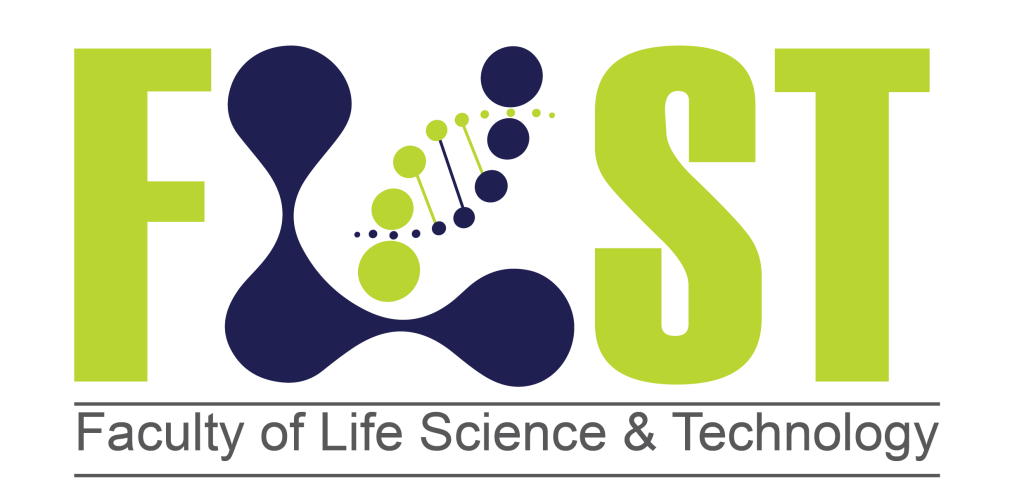Department of Environmental Science
About the Department
Vision
Mission
HOD's Desk
Graduate Attributes (GA)
About the Department
Overview of the Department
The Department of Environmental Sciences is established in 2012 that committed to fostering
environmental knowledge, promoting high-quality education, and conducting cutting-edge
research. The department actively engages in addressing local environmental challenges, raising
environmental awareness, and promoting sustainable practices, with a special focus on rural
development.
Achieving milestone by implementing NEP-2020
2016
Launch of the M.Sc. in Environmental Sciences program, focusing on interdisciplinary environmental studies.
2017
Launch of the Ph.D. research, emphasizing innovative solutions for environmental sustainability.
2018
Launch of the Postgraduate Diploma in Environmental Pollution Management (PGDEPM), aimed at tackling pollution and promoting eco-friendly practices.
2020
Launch of the Postgraduate Diploma in Sustainable and Health Environment (PGDSHE), integrating health with environmental sustainability.
2022
Awarded the first Ph.D., marking a significant milestone in research excellence.
2024
Successfully awarded three Ph.D. degrees, till 2024 reflecting the department’s growing contribution to environmental research.
Vision
Vision
The Department of Environmental Science aims to be a leading center for interdisciplinary research and education, addressing environmental challenges through transformative research,
collaboration, and engagement for sustainable solutions.

Mission
Mission
1) Human resource development to tackle environmental challenges and to achieve
sustainability.
2) Promote cost effective technologies for agriculture and industries for nation building quality teaching and knowledge on current environmental issues.
3) Impart environmental awareness and education for healthy, pollution free and habitable environment.
2) Promote cost effective technologies for agriculture and industries for nation building quality teaching and knowledge on current environmental issues.
3) Impart environmental awareness and education for healthy, pollution free and habitable environment.
HOD's Desk
Dr. Mahendra Kumar Tiwari
Professor & Head Department of Environmental ScienceAKS University, Satna (M.P.) India – 485001

Message
Welcome to the Department of Environmental Sciences at AKS University! Since our
establishment in 2012, we have been dedicated to fostering environmental knowledge, promoting
high-quality education, and advancing innovative research. Our mission is to address pressing
environmental challenges while promoting sustainable solutions that benefit both society and the
planet. With a special focus on rural development, we aim to create awareness and develop
technologies that contribute to a cleaner, healthier, and more sustainable future.
Over the years, our department has achieved significant academic milestones that reflect our commitment to excellence. In 2016, we launched the M.Sc. in Environmental Sciences program, providing an interdisciplinary approach to environmental studies. Recognizing the importance of research, we introduced the Ph.D. program in 2017, focusing on innovative solutions for environmental sustainability. To further broaden our academic offerings, we introduced specialized diploma programs—Post Graduate Diploma in Environmental Pollution Management (PGDEPM) in 2018, aimed at tackling pollution, and Post Graduate Diploma in Safety, Health & Environment (PGDSHE) in 2018, integrating health with environmental sustainability.
A proud milestone in our journey came in 2022, when we awarded our first Ph.D. degree, marking a new chapter in research excellence. By 2024, we successfully awarded three Ph.D. degrees, reflecting our growing contribution to environmental research and the development of future environmental leaders. These achievements highlight our department’s commitment to providing a robust academic foundation while addressing real-world environmental concerns.
Our mission is to be a leading center for interdisciplinary education and research, developing human resources to tackle environmental challenges through innovation and collaboration. We aim to promote cost-effective technologies for agriculture and industry, contributing to nation- building and addressing current environmental issues through quality teaching and cutting-edge research. Furthermore, we are committed to fostering environmental awareness and promoting education that supports a healthy, pollution-free, and sustainable future.
The Department of Environmental Sciences is more than an academic institution it is a hub for transformative research and community engagement. We work closely with government agencies, industry leaders, and local communities to implement sustainable practices and address pressing environmental concerns. Our faculty members, who are dedicated and highly qualified, play a crucial role in mentoring and guiding students. They encourage a research oriented mindset, foster scientific curiosity, and provide hands-on training in environmental analysis and technology.
We are committed to the holistic development of our students by encouraging participation in co- curricular and extra-curricular activities that enhance leadership skills, teamwork, and social responsibility. Through our comprehensive academic programs and research initiatives, we aim to equip students with the knowledge, ethical values, and scientific expertise needed to excel as environmental professionals, researchers, and responsible citizens.
As the Head of the Department, I am proud of the achievements of our faculty, researchers, and students who work tirelessly toward the common goal of environmental sustainability. I invite you to join us on this journey, where education meets innovation, and together, we contribute to a better and more sustainable world.
Over the years, our department has achieved significant academic milestones that reflect our commitment to excellence. In 2016, we launched the M.Sc. in Environmental Sciences program, providing an interdisciplinary approach to environmental studies. Recognizing the importance of research, we introduced the Ph.D. program in 2017, focusing on innovative solutions for environmental sustainability. To further broaden our academic offerings, we introduced specialized diploma programs—Post Graduate Diploma in Environmental Pollution Management (PGDEPM) in 2018, aimed at tackling pollution, and Post Graduate Diploma in Safety, Health & Environment (PGDSHE) in 2018, integrating health with environmental sustainability.
A proud milestone in our journey came in 2022, when we awarded our first Ph.D. degree, marking a new chapter in research excellence. By 2024, we successfully awarded three Ph.D. degrees, reflecting our growing contribution to environmental research and the development of future environmental leaders. These achievements highlight our department’s commitment to providing a robust academic foundation while addressing real-world environmental concerns.
Our mission is to be a leading center for interdisciplinary education and research, developing human resources to tackle environmental challenges through innovation and collaboration. We aim to promote cost-effective technologies for agriculture and industry, contributing to nation- building and addressing current environmental issues through quality teaching and cutting-edge research. Furthermore, we are committed to fostering environmental awareness and promoting education that supports a healthy, pollution-free, and sustainable future.
The Department of Environmental Sciences is more than an academic institution it is a hub for transformative research and community engagement. We work closely with government agencies, industry leaders, and local communities to implement sustainable practices and address pressing environmental concerns. Our faculty members, who are dedicated and highly qualified, play a crucial role in mentoring and guiding students. They encourage a research oriented mindset, foster scientific curiosity, and provide hands-on training in environmental analysis and technology.
We are committed to the holistic development of our students by encouraging participation in co- curricular and extra-curricular activities that enhance leadership skills, teamwork, and social responsibility. Through our comprehensive academic programs and research initiatives, we aim to equip students with the knowledge, ethical values, and scientific expertise needed to excel as environmental professionals, researchers, and responsible citizens.
As the Head of the Department, I am proud of the achievements of our faculty, researchers, and students who work tirelessly toward the common goal of environmental sustainability. I invite you to join us on this journey, where education meets innovation, and together, we contribute to a better and more sustainable world.
Graduate Attributes (GA)
Graduate Attributes (GA)
Graduate Attributes (GA) – Department of Environmental Sciences
1. Environmental Knowledge and Understanding: Demonstrate comprehensive knowledge of environmental principles, ecological systems, and the impact of human activities on the environment.
2. Research and Analytical Skills: Develop the ability to design, conduct, and interpret environmental research using advanced scientific methodologies and analytical tools.
3. Sustainability and Problem-Solving Approach: Apply sustainable practices and innovative solutions to address environmental challenges, including pollution control, climate change mitigation, and biodiversity conservation.
4. Interdisciplinary Competence: Integrate knowledge from diverse disciplines such as biology, chemistry, geology, and social sciences to solve complex environmental issues.
5. Technical and Practical Expertise: Gain hands-on experience with modern environmental monitoring tools, laboratory techniques, and fieldwork methodologies for effective environmental assessment.
6. Ethics and Social Responsibility: Understand and uphold ethical standards while addressing environmental concerns, with a commitment to promoting social responsibility and environmental justice.
7. Communication and Advocacy: Effectively communicate environmental issues, research findings, and sustainable solutions to diverse audiences through written, verbal, and digital platforms.
8. Leadership and Teamwork: Demonstrate leadership qualities and collaborative skills by working effectively in multidisciplinary teams to address environmental and sustainability challenges.
9. Policy Awareness and Governance: Understand environmental laws, policies, and international agreements, contributing to informed decision-making and policy development for sustainable development.
10. Lifelong Learning and Adaptability: Cultivate a mindset of continuous learning, staying updated on emerging environmental trends, technologies, and global sustainability goals.
1. Environmental Knowledge and Understanding: Demonstrate comprehensive knowledge of environmental principles, ecological systems, and the impact of human activities on the environment.
2. Research and Analytical Skills: Develop the ability to design, conduct, and interpret environmental research using advanced scientific methodologies and analytical tools.
3. Sustainability and Problem-Solving Approach: Apply sustainable practices and innovative solutions to address environmental challenges, including pollution control, climate change mitigation, and biodiversity conservation.
4. Interdisciplinary Competence: Integrate knowledge from diverse disciplines such as biology, chemistry, geology, and social sciences to solve complex environmental issues.
5. Technical and Practical Expertise: Gain hands-on experience with modern environmental monitoring tools, laboratory techniques, and fieldwork methodologies for effective environmental assessment.
6. Ethics and Social Responsibility: Understand and uphold ethical standards while addressing environmental concerns, with a commitment to promoting social responsibility and environmental justice.
7. Communication and Advocacy: Effectively communicate environmental issues, research findings, and sustainable solutions to diverse audiences through written, verbal, and digital platforms.
8. Leadership and Teamwork: Demonstrate leadership qualities and collaborative skills by working effectively in multidisciplinary teams to address environmental and sustainability challenges.
9. Policy Awareness and Governance: Understand environmental laws, policies, and international agreements, contributing to informed decision-making and policy development for sustainable development.
10. Lifelong Learning and Adaptability: Cultivate a mindset of continuous learning, staying updated on emerging environmental trends, technologies, and global sustainability goals.

